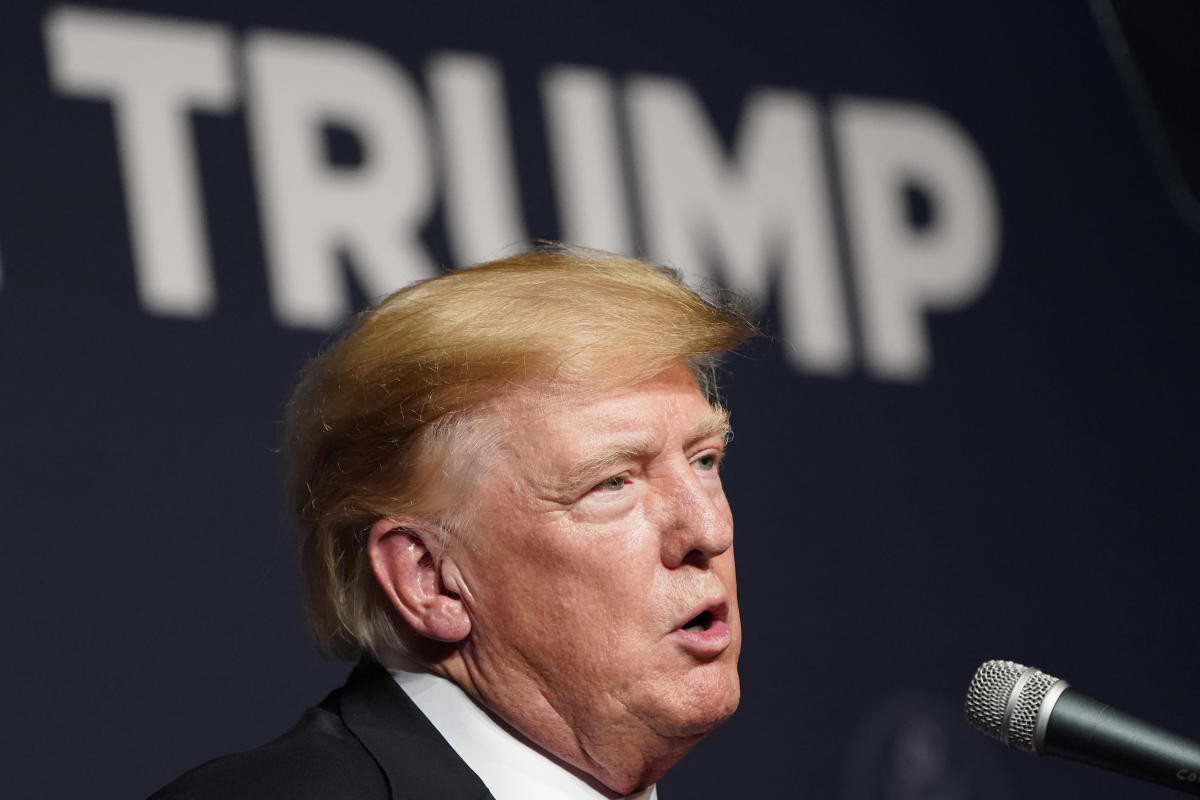NEW YORK (AP) – Donald Trump and two of his children – Donald Jr. and Ivanka — will be questioned under oath in the New York civil investigation into their business practices in the coming days. But will the Trumps answer?
The ex-president’s lawyer has indicated that he will advise Trump to shut up and invoke Fifth Amendment protections against self-incrimination. It’s a constitutional right that gets a lot of attention in institutions from Congress to crime dramas on TV, but there are nuances. Here’s what it means—and not—to “plee (or ‘take’) for the Fifth.”
WHAT IS ‘THE FIFTH’?
The Fifth Amendment to the U.S. Constitution establishes a number of rights related to court proceedings, including that no one “shall be compelled to testify against himself in a criminal case.”
In the most direct sense, this means that criminal suspects don’t have to give damning testimony in their own case. But it also applies in non-criminal contexts.
WHAT IS THE THINKING BEHIND?
“It reflects many of our fundamental values and most noble aspirations,” the Supreme Court wrote in 1964.
One such ideal: to prevent people from being tortured into confessing or falling into a “cruel trilemma of self-accusation, perjury or contempt” of the court.
Many decades earlier, the court also questioned the reliability of forced confessions.
THE AMENDMENT REFERS SPECIFICALLY TO CRIMINAL MATTERS. HOW MAY IT APPLY TO A CIVIL INVESTIGATION?
Over time, it has been considered that the protection of the Fifth Amendment extends to witnesses – not just defendants – in criminal and civil courts and other government agencies. The Supreme Court has even ruled that Fifth Amendment rights protected the jobs of officials fired after refusing to testify in investigations unless they were granted immunity from prosecution.
The Fifth Amendment also supports Miranda’s famous warning about the right to remain silent and have a lawyer on hand during questioning in police custody.
SO ARE THERE RESTRICTIONS?
According to what has become the legal norm, the witness must face a real risk of criminal charges, said Paul Cassell, a professor of criminal justice at the University of Utah. That means prosecuting any charges in a US court.
There are sometimes disputes about whether the right is wrongly invoked. The requesting party can ask a judge to declare that someone must answer or face contempt of court and possible penalties.
But “the courts have generally thought they should give the benefit of the doubt to someone who could face criminal charges, rather than force someone to testify and then learn, ‘Oops!'” Cassell said.
OKAY. CAN ANYONE TAKE THE FIFTH DECIDE TO ANSWER SOME QUESTIONS BUT NOT OTHERS?
Yes, it’s not necessarily all or nothing. But even deciding to answer selectively can be risky: by responding to one question, the other party may argue that the witness cannot refuse to answer other, related questions. Another concern: Seemingly safe questions may be intended to gather evidence about an accusation that’s not yet on the witness’s radar.
hmm. IF YOU ENTER PROTECTION WILL IT WORK AGAINST YOU?
Legally it depends. In a criminal case, prosecutors cannot comment on a defendant’s refusal to testify, and a jury cannot be made aware that it is OK to take defendants’ silence as a sign of guilt. The Supreme Court has said that allowing that inference would punish defendants for simply taking advantage of a constitutional protection.
But in civil cases, jurors are generally allowed to remain silent against a suspect or witness.
Then there is the court of public opinion.
“Does it look bad? For the general public, yes,” said Lenese Herbert, professor of criminal justice at Howard University. “But that’s just a result of poor citizenship education.”
The former federal prosecutor often reminds her students that while jurors may want to hear a defendant’s side of the story, a defense attorney’s job is to make sure the jury understands that the client has a right not to to take a position.
CAN WE BACK TO TRUMP? HE IS INTERESTED IN A CIVIL INVESTIGATION. CAN HE PROVE THAT THERE IS THE POTENTIAL FOR CRIMINAL PROSECUTION?
Indeed, his attorneys have already argued that the civil investigation of New York Attorney General Letitia James is essentially a fact-finding mission for the parallel criminal investigation of Manhattan District Attorney Alvin Bragg.
James has said her investigation has found evidence that the company inflated real estate values to get loans, insurance and tax breaks on land donations. Trump has denied the charges and the Republican has dismissed the investigation as a political “witch hunt” by Democratic officials.
Meanwhile, other results of James’s investigation led the prosecution office to charge criminal tax fraud against the businessman-turned-politician’s company, called the Trump Organization, and its chief financial officer. The defendants pleaded not guilty in that case, with claims for damages.
WHAT HAS TEAM TRUMP SAID ABOUT ALL OF THIS?
Trump attorney Ronald Fischetti has said that unless legal immunity is granted for the impending impeachment of the ex-president — a term for out-of-court affidavit — he would advise invoking the Fifth Amendment.” because that’s what the law states.” Still, he insisted that publicity around such a choice now could hurt Trump’s defenses if a criminal charge comes.
“How can I choose a jury in that case?” said Fischetti, trying, in vain, to block the cordon.
Trump himself has repeatedly suggested years ago that only those who have something to hide take advantage of the protections.
“The crowd takes the Fifth,” he once declared.

